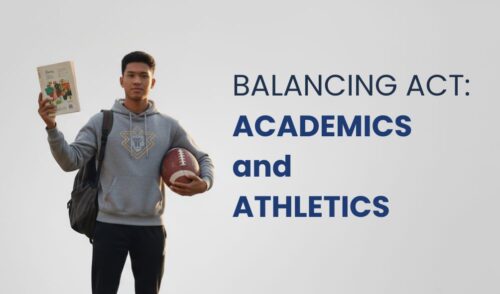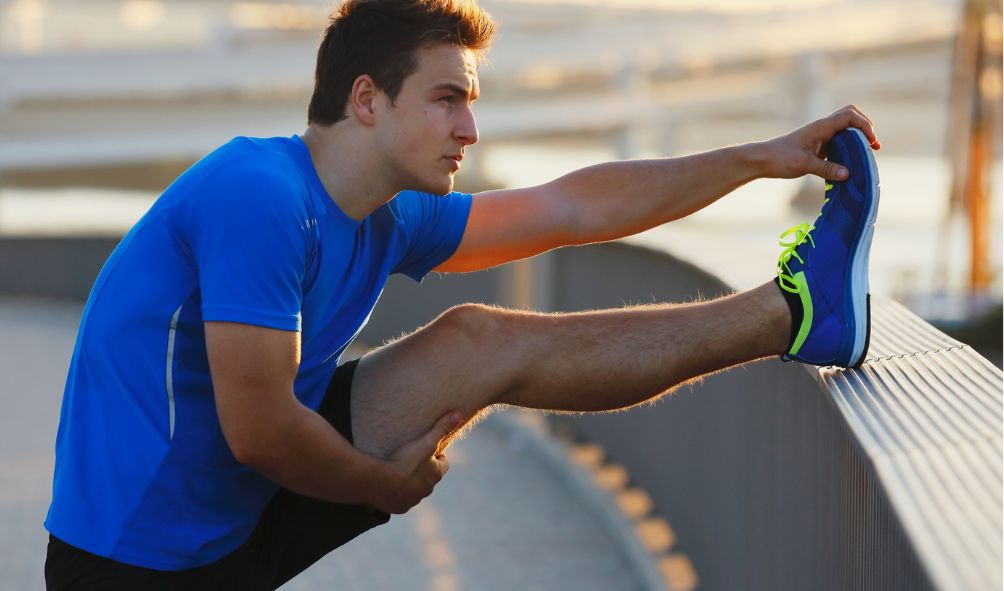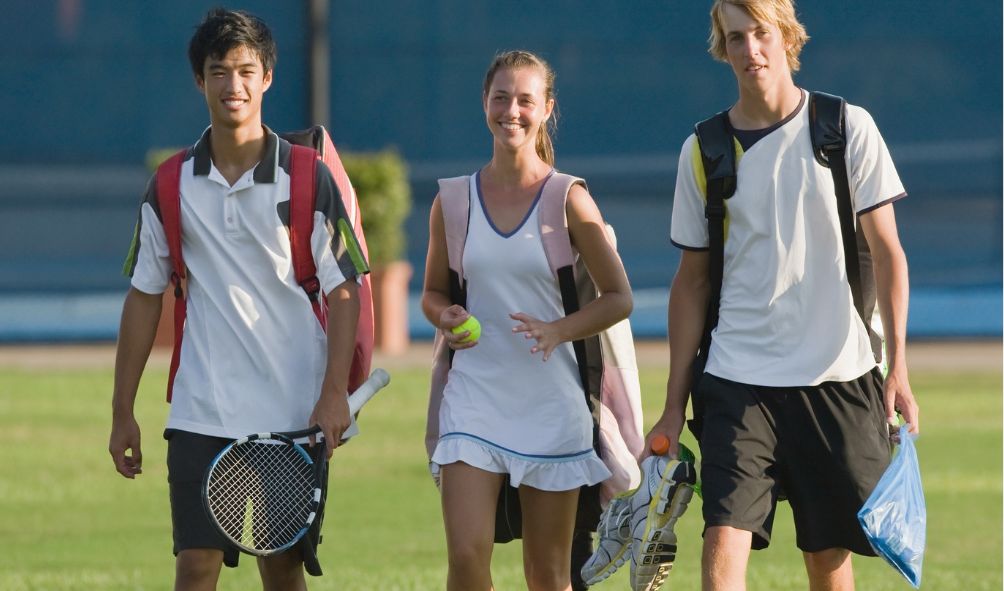For many student-athletes, the line between thriving and burning out is razor-thin. Between early morning workouts, classes, late-night study sessions, and the constant push to perform, the pressure can quietly build until it becomes overwhelming. What helps one athlete rise under that pressure while another struggles isn’t just physical conditioning—it’s mental strength in sports.
Resilience is often misunderstood as toughness or the ability to “just push through.” In truth, it’s something deeper: the psychological flexibility to adapt, recover, and grow stronger after setbacks. Research in sport psychology shows that resilience is not an inborn trait but a process developed through mindset, coping strategies, and environmental support. According to Galli & Vealey (2008), “athletes make use of personal, social, and cultural factors to overcome various adversities in sport,” illustrating that resilience emerges through a dynamic interaction between internal and external resources, rather than being a fixed trait. Studies by Zhang & Li (2025) also highlight the importance of a positive team atmosphere and growth mindset in building an athlete’s capacity to recover mentally from adversity .
Developing this kind of strength doesn’t happen overnight. It comes from deliberate habits that allow student-athletes to balance stress, protect their mental health, and stay grounded in who they are, both on and off the field. Building mental strength in sports is a long-term investment that supports performance and personal well-being alike.

The Challenge of Balance
Being a student-athlete often means juggling two full-time identities. The demands of practices, travel, and competitions stack on top of academics, social life, and personal responsibilities. Without structure, that constant juggling act can lead to chronic stress and exhaustion.
Building balance starts with time management and recovery, not as optional add-ons, but as integral parts of performance. The NCAA Mind, Body and Sport Report (2014) notes that many student-athletes struggle with sleep deprivation due to the constant balancing act of academics, athletics, and campus life. Making adequate rest a core priority, rather than something that gets sacrificed, can improve time management, reduce stress, and support both academic and athletic success. Student-athletes who plan their weeks around priorities, study blocks, and downtime report lower stress levels and higher satisfaction.
These small acts of discipline are not just about organization. They’re about cultivating mental strength in sports. When athletes learn to prioritize rest, recovery, and academic responsibilities with the same focus they give to training, they strengthen their ability to handle pressure from every direction.
The Role of Mindfulness in Athletic Performance
In recent years, mindfulness has gained strong scientific support as one of the most effective tools for enhancing both mental health and performance in sports. It helps athletes cultivate awareness of their thoughts, regulate emotions, and maintain focus under pressure—all of which directly influence competitive outcomes.
A systematic review and meta-analysis on mindfulness-based interventions (MBIs) in sports found significant evidence that mindfulness training improves athletic performance, mindfulness levels, and related psychological components such as concentration and emotional control. This growing body of research confirms what many athletes have experienced firsthand mental clarity can be trained just like physical strength.
Mindfulness doesn’t require hours of meditation or complex routines. It can start with a few minutes of focused breathing before practice, visualization exercises before a game, or body-awareness check-ins between drills. The key is consistency. Over time, these moments strengthen emotional regulation, self-awareness, and mental strength in sports—the foundation of a true mental edge.
When mindfulness becomes part of an athlete’s regular routine, performance no longer depends solely on physical readiness but also on a calm, focused mind that knows how to reset after mistakes and stay fully present under pressure.
Why Support Systems Matter
Resilience deepens when athletes realize they don’t have to face mental challenges alone. Friendships, open coach communication, and affordable access to mental health professionals all serve as pillars of psychological well-being for athletes.
Yet despite willingness among many collegiate athletes to use mental health services, multiple barriers remain. According to Moreland et al., 2017, perceived stigma, limited availability of services tailored to athletes, and strong peer norms can inhibit help seeking, even when an athlete sees value in support.
Because athletes’ decisions to seek help are influenced by the culture around them—teammates, coaches, athletic departments—it’s critical that programs embed mental health resources directly within sports settings. When mental health services are normalized and made easily accessible in the athletic environment, engagement tends to increase and emotional outcomes improve.
Strong relationships contribute significantly to mental strength in sports. Encouragement from teammates, compassionate coaching, and access to sports psychologists create environments where athletes feel safe to speak up and reset mentally.
Research also supports the value of self-compassion within these networks. A recent intervention with NCAA athletes found that training athletes to treat themselves with kindness and understanding, especially after setbacks, improved their overall well-being and performance perceptions (Mosewich et al., 2023). These findings remind us that mental strength doesn’t come from constant self-criticism; it grows in spaces where athletes feel supported, respected, and valued as people.

Finding Identity Beyond the Game
One of the most overlooked aspects of mental health for student-athletes is identity. When so much of a person’s self-worth is tied to their sport, an injury, benching, or graduation can feel like losing a part of who they are. The shift can be emotionally difficult, leading to anxiety, grief, or even depression.
Cultivating a sense of self beyond athletics helps buffer these transitions. Athletes who explore their interests outside of sport, through academics, hobbies, or friendships, report better mental adjustment during times of change. Reflection practices, journaling, or community involvement can all reinforce the idea that athletic performance is just one part of a much bigger identity.
Developing identity beyond the game also reinforces mental strength in sports. When athletes recognize that their worth isn’t solely defined by wins or statistics, they become more resilient and adaptable—qualities that elevate both performance and personal growth.
A study examining the career transitions of high-profile collegiate student-athletes demonstrates the crucial role of identity development in psychological well-being. The research, which utilized the multidimensional model of psychological well-being, showed that role engulfment, the act of embracing the athlete identity while abandoning other traits, can negatively affect post-athletic career transitions.
Conversely, the development of a complex and multifaceted sense of identity is a protective factor. The less a student-athlete is defined solely by their sport, the more effective they are at navigating life’s inevitable shifts and maintaining psychological health after competition ends.
The Path Forward
Building resilience isn’t a one-time effort. It’s a continual process of awareness, adjustment, and growth. For student-athletes, it means acknowledging that mental health and performance are inseparable and that strong minds create strong bodies.
At Our Mental Edge, we believe every athlete deserves access to tools that strengthen both. Our programs are designed to help student-athletes build focus, manage stress, and cultivate mental strength in sports that lasts. Through mindfulness techniques, mindset training, and individualized support, we help athletes discover confidence that extends beyond competition.
Your mental edge isn’t found in perfection. It’s built through persistence, patience, and self-understanding. Every practice, every challenge, and every comeback becomes part of the journey toward balance, and true mental strength in sports.
Contact us today to start building your mental strength in sports.



